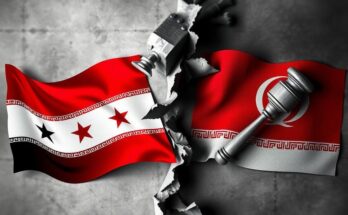Iran has lifted bans on WhatsApp and Google Play, marking a step towards broader internet access. This decision aligns with the government’s promises to enhance connectivity with global platforms, amid long-standing internet restrictions. While some platforms remain blocked, officials are considering future unblocking initiatives, amidst a landscape of political opposition and a growing desire for greater online freedom among the populace.
In a significant development for digital access in Iran, the Supreme Council of Cyberspace announced on Tuesday the removal of restrictions on WhatsApp and Google Play. This initiative is being hailed as the first step towards broader internet accessibility, reflecting the promises of the recently elected government to enhance connectivity with global digital platforms. Former Foreign Minister Javad Zarif emphasized the importance of this move, citing key political figures’ commitments to reducing censorship. Some experts, such as Ali Sharifi Zarchi from the Sharif University of Technology, hailed the decision as a positive shift, suggesting it indicates an opening up of previously restricted platforms, which would alleviate the heavy financial burden imposed on families reliant on Virtual Private Networks (VPNs). This decision comes amid ongoing criticism regarding the extensive filtering of international platforms in Iran’s digital landscape, with calls for more action to ensure unrestricted internet access.
Despite the lifting of bans on WhatsApp and Google Play, many platforms remain inaccessible, and government officials have yet to clarify which services might be unblocked next. Observers suggest that this move could signal a policy shift towards less stringent internet regulations aimed at integrating Iran into the global digital economy. A second phase proposed by the council includes plans to provide access to YouTube through controlled gateways and to enforce stricter rules regarding foreign platforms. Future phases may involve reopening Telegram under certain conditions and addressing regulations concerning user access and any breaches related to unauthorized platforms. Opposition has arisen among lawmakers, with a recent poll reflecting ongoing favoritism towards Telegram as the preferred social media platform, despite restrictions.
The longstanding history of internet censorship in Iran traces back to the early 2000s, with significant limitations imposed on platforms such as Facebook, Twitter, and Telegram. This has led to the emergence of a thriving VPN market, fostering a parallel internet economy. On December 24, a group of 136 parliament members publicly opposed any easing of social media restrictions, expressing concerns that such actions could be perceived as favorable to opposition forces. Communications Minister Sattar Hashemi acknowledged the undesirability of the current filtering situation, underscoring the government’s intent to tackle these issues through technical solutions. However, public sentiment remains mixed, with many questioning the validity of preference surveys conducted in light of severe restrictions and calling for immediate, structural changes to internet accessibility.
The recent decision by Iran’s Supreme Council of Cyberspace to remove restrictions on WhatsApp and Google Play is part of an overarching agenda to enhance internet access in the country. Following years of stringent filtering of social media platforms, the new government has indicated a desire to align its digital policies with global standards. The ongoing discussions around internet access in Iran highlight significant socio-political dynamics and varying perspectives among lawmakers, analysts, and ordinary citizens regarding the necessity of reform in this area.
The removal of restrictions on WhatsApp and Google Play marks a notable shift in Iran’s approach to internet accessibility, potentially laying the groundwork for greater engagement with global digital networks. While public and governmental sentiments are evolving towards a more open internet, substantial challenges remain, including opposition from lawmakers and the necessity for further policy advancements to ensure comprehensive access. The unfolding situation in Iran underscores the complexities of balancing censorship and connectivity in a rapidly evolving digital landscape.
Original Source: www.intellinews.com




